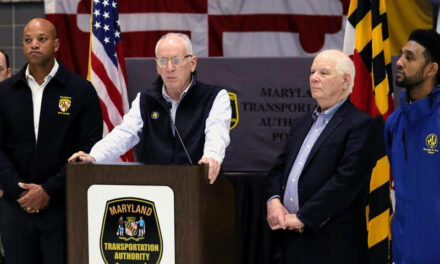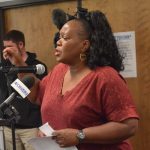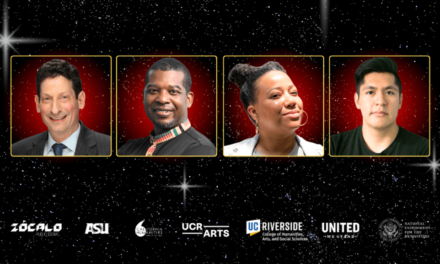By Megan Sayles
AFRO Business Writer
msayles@afro.com
As Baltimore continues to invest in its Digital Inclusion Strategy, three city agencies have teamed up to arm older Baltimoreans with skills essential to navigating the online landscape.
The Baltimore City Office of Information and Technology (BCIT), the Enoch Pratt Free Library and the Baltimore City Health Department’s (BCHD) Division of Aging established the Digital Literacy Training Program to supply free, hands-on instruction in using computers, smartphones, tablets and the internet.

Digital literacy has become crucial to navigating daily life, as so many aspects of communication, employment, finance and health care rely on the use of technology. Without it, older adults can experience isolation or an inability to access critical information.
“Lack of digital literacy skills for older adults can significantly impact their quality of life,” said Tara Bhardvaj, impact analyst for the Enoch Pratt Free Library. “Especially post-pandemic, we have seen a growing number of services move online. Digital literacy allows older adults to schedule medical appointments, pursue their interests and passions and stay connected to friends and loved ones across the globe.”
Alice Huang, acting assistant commissioner of community services in the division of aging for BCHD, affirmed this attitude, particularly as the digital world continues to grow at a rapid pace.

“We know that digital access keeps evolving. Whatever we do to help serve older adults, we know that gap continues to get bigger and bigger as technology keeps changing and moving forward,” said Huang. “We need to keep nudging older adults into the direction of having digital literacy, understanding and being comfortable around digital resources and knowing that more and more resources are being transitioned to the digital space.”
The Digital Literacy Training Program covers foundational topics, like basic computer skills, internet safety, communication tools, health and wellness apps, and accessing online services, like banking, shopping and government resources. Older adults can take classes at libraries and several centers across the city, including the Harford, Hatton, Oliver and Sandtown-Winchester Senior Centers.

According to Huang one of the barriers to digital literacy in older adults is the way technology is designed.
“Sometimes, when we create technology, it’s not always easy to think about the user experience from a wide range of people,” said Huang. “The way technology is created is really for the mainstream masses, and a lot of these resources are not geared toward older adults.”
She said internet safety is one of the foremost concerns for older adults, as they are more vulnerable to phishing schemes and other scams. In an effort to assuage some of this fear, Enoch Pratt Free Library and BCHD’s Division of Aging are employing digital navigators to support older adults.
“These digital navigators are going to be a regular presence at our senior centers. They will really get to know the members of the centers; understand their specific concerns and needs; and craft programs, services and education around each center’s specific interests,” said Huang. “We know people in different communities have different levels of comfort. We want to be able to cater to each of those members at our centers.”
Digital navigators, which are expected to start this fall, will host drop-in hours for older adults to ask questions, raise concerns and receive technical support.
Huang said the city’s senior centers are forging a path to become spaces where older adults can experiment with the internet safely. Recently, her agency purchased gaming consoles for some of the hubs. Currently, it’s working to bring high-speed, fiber-optic internet to all centers.
“We really hope our senior centers can be that safe environment to try new things, see what’s out there and expand what they can see themselves doing in a tech-savvy world,” said Huang.
For Enoch Pratt Free Library, digital inclusion is ingrained in its strategic plan. Bhardvaj said the library system is committed to closing the digital divide and will continue to offer digital literacy training to older adults for the foreseeable future.
To achieve digital inclusion, she said older adults cannot be left behind.
“Digital inclusion allows everyone access to educational opportunities that help individuals acquire new skills and pursue lifelong learning, regardless of their location or background,” said Tara Bhardvaj, impact analyst for Enoch Pratt Free Library. “Digital inclusion aims to bridge the digital divide, ensuring older adults can benefit from the opportunities and conveniences the digital age offers.”
This story is part of the Digital Equity Local Voices Fellowship lab. The lab initiative is made possible with support from Comcast NBC Universal.
The post City agencies team up to equip older adults with digital literacy appeared first on AFRO American Newspapers.











